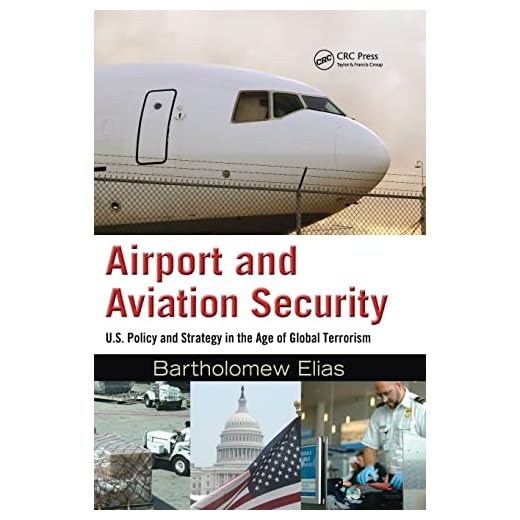



Approaching the task of handling another individual’s bags is a practice laden with risks and legal implications. Without explicit permission from the owner, grabbing a piece of baggage can lead to unwanted consequences. It’s critical to understand the implications of this action before proceeding.
First, always assess the situation. If a bag appears abandoned, contacting airport or transportation authorities is the appropriate step. They have protocols in place for locating owners and handling lost items securely. This not only protects you legally but ensures that the rightful owner is reunited with their belongings efficiently.
In public spaces, never assume ownership based on mere proximity. Taking possession of a bag without consent can trigger accusations of theft, a serious offense with potential legal repercussions. Instead, alert staff who are trained to handle such matters appropriately.
Understanding property rights is vital. If an object is left unattended, it doesn’t automatically become available to the public. Always err on the side of caution; respecting others’ possessions fosters trust and safety in shared spaces.
Can You Pick Up Someone Else’s Luggage?
Carrying a colleague’s bag or a friend’s suitcase isn’t typically recommended due to security protocols and airline policies. Most airports have regulations that strictly prohibit handling baggage that isn’t registered to the individual. If approached, verifying ownership through identification is key.
When assisting a fellow traveler, ensure their baggage is clearly marked or distinguishable. This step minimizes the risk of errors and enhances safety. If a companion requests help, it’s wiser to provide support without physically moving their belongings whenever possible.
In the event of a travel emergency, such as a missed flight, consider contacting the airline’s customer service. They can provide guidance on inventory handling and proper procedures for retrieving items on behalf of another.
Always prioritize personal safety. If a bag appears abandoned or suspicious, alert airport personnel instead of attempting to manage the situation alone. Prompt authorities will ensure proper assessment.
Understanding Airline Policies on Baggage Claim
Airlines maintain specific regulations for retrieving checked items, which vary by carrier. It’s advisable to familiarize with these policies prior to travel. Below is a detailed overview of common baggage claim procedures based on airline guidelines.
| Airline | Policy Overview | ID Requirements |
|---|---|---|
| Delta Air Lines | Only the ticketed passenger may collect their belongings. | Government-issued ID of the passenger is mandatory. |
| American Airlines | No one except the person who checked the items can retrieve them. | Ticket and identification matching passenger name are required. |
| United Airlines | Restrictions apply; individuals must verify identity to claim bags. | Passenger must provide a boarding pass along with an ID. |
| Southwest Airlines | Only the owner of the baggage can collect it unless a signed authorization is provided. | ID and signed letter from the passenger are necessary for third-party collection. |
All travelers should maintain relevant documentation handy, which assists in seamless retrieval of personal belongings. In case of lost or mishandled items, immediate notification to airline staff is critical for resolution.
Reviewing T&Cs of the specific airline regarding checked items is advised before departure to prevent misunderstandings at the airport.
Legal Implications of Taking Someone Else’s Luggage
Retrieving another individual’s belongings without permission may lead to significant legal repercussions. It can be considered theft, resulting in potential criminal charges. In many jurisdictions, the act of taking items that do not belong to oneself, regardless of intention, is punishable under law.
Civil Liability
In addition to criminal consequences, there can also be civil liabilities. The rightful owner may pursue damages through a civil lawsuit for loss or damage of property. This could entail compensation for the value of the items or any consequential losses incurred due to the unlawful taking.
Impact on Airline Policies
Airlines have strict protocols regarding baggage retrieval and ownership verification. Individuals can face penalties from the airline itself, including potential banning or fines for breaching these policies. Understanding these implications is crucial before attempting to retrieve items that do not rightfully belong to you. For instance, if a backpack is involved in such a scenario, it may be surprising to learn about the factors affecting its ownership claims, similar to inquiries regarding which of the following describes a process in protein synthesis.
For those seeking family travel solutions, consider the best mom diaper backpack that offers space and organization for personal items, ensuring a smooth travel experience without the risk of legal issues.
Steps to Properly Handle Misplaced Luggage
Report the situation to the airline or luggage service immediately. Provide as many details as possible, including your flight number, baggage claim ticket, and descriptions of the item.
Document the Incident
Take photos of what you believe to be misplaced items if possible. Record names, contact numbers, and any reference numbers given by airline staff.
Follow Up Regularly
- Make periodic inquiries about the status of your report.
- Keep a record of all communications, including dates and times of conversations.
- Be polite yet persistent in checking updates.
Be prepared to fill out a formal baggage claim form, which may require additional information for processing.
Understand Compensation Policies
Familiarize yourself with the compensation policies of the airline regarding lost or damaged belongings. Some airlines may offer reimbursement for essential items purchased while waiting for a resolution.
Consider contacting travel insurance providers if applicable. Some policies may cover losses or delays associated with missing possessions.
Staying organized and proactive enhances the chances of locating misplaced items efficiently.
Identifying Your Own Bag in a Busy Airport
To differentiate personal belongings from others in a congested terminal, utilize distinct luggage tags or identifiers. Brightly colored straps or unique decals can help during retrieval. Ensure that your personal information is securely attached and not easily removable, enhancing the likelihood of rapid identification.
Tech Solutions
Consider using Bluetooth tracking devices that sync with smartphones. These gadgets allow real-time monitoring of the status and location of your case, enabling swift identification amidst a sea of similar items. Using an accompanying app streamlines the process of finding your belongings at baggage claim.
Physical Inspection

When scanning for your items, examine each suitcase closely. Look for small imperfections, wear marks, or unique wear patterns that others might miss. Open zippers or flaps gently to confirm contents align with your own items, reducing the risk of accidental grabs. Always revisit the claim area if uncertain, as misidentifications can happen frequently during peak travel times.
What to Do If You Accidentally Take the Wrong Bag
Immediately return to the baggage claim area or area of confusion to locate the correct item. Notify airline staff right away, providing detailed information about your situation. This aids in tracking your own belongings and assists in the recovery of the inaccurate bag.
Steps to Resolve the Situation
Check the identification tags on the bag. If the tag belongs to another traveler, attempt to find that individual by showing the bag tag to nearby staff or fellow passengers. Ensure all contents are inside before reassessing your own belongings.
Follow Up
Contact the airline’s customer service to provide details and seek assistance. Document everything, including the bag’s description, any unique features, and the time of the mishap. This will be instrumental in case of future disputes or claims.
FAQ:
Is it legal to pick up someone else’s luggage at an airport?
Taking someone else’s luggage without permission is generally considered theft and is illegal. Luggage is primarily seen as personal property, and taking it can lead to serious legal consequences. If you mistakenly take someone else’s bag, return it to the airline or the lost and found at the airport immediately. If you are trying to assist someone else, always ask for their permission before interacting with their belongings.
What should I do if I accidentally take the wrong bag from the airport?
If you find yourself in the situation of having taken the wrong bag, the best course of action is to return it to the airline’s lost and found area or to a nearby airport staff member. Make sure to check the bag’s tag for any identification that could lead you to its rightful owner. It’s important not to open or use the contents of the suitcase, as this could violate privacy and legal regulations. Most airlines have procedures in place to help reunite owners with their luggage, so report the issue as soon as possible.







